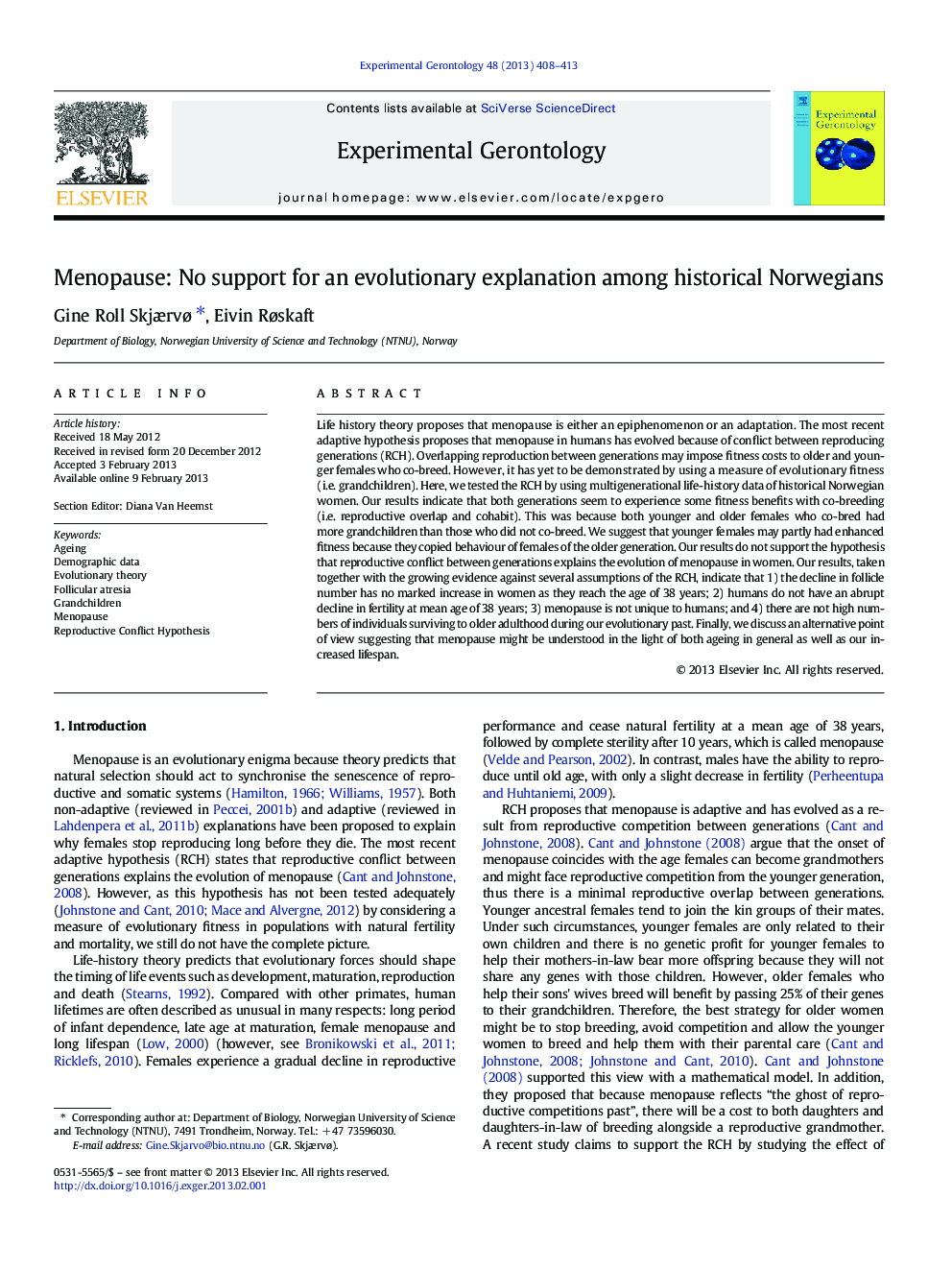| Article ID | Journal | Published Year | Pages | File Type |
|---|---|---|---|---|
| 1906496 | Experimental Gerontology | 2013 | 6 Pages |
Life history theory proposes that menopause is either an epiphenomenon or an adaptation. The most recent adaptive hypothesis proposes that menopause in humans has evolved because of conflict between reproducing generations (RCH). Overlapping reproduction between generations may impose fitness costs to older and younger females who co-breed. However, it has yet to be demonstrated by using a measure of evolutionary fitness (i.e. grandchildren). Here, we tested the RCH by using multigenerational life-history data of historical Norwegian women. Our results indicate that both generations seem to experience some fitness benefits with co-breeding (i.e. reproductive overlap and cohabit). This was because both younger and older females who co-bred had more grandchildren than those who did not co-breed. We suggest that younger females may partly had enhanced fitness because they copied behaviour of females of the older generation. Our results do not support the hypothesis that reproductive conflict between generations explains the evolution of menopause in women. Our results, taken together with the growing evidence against several assumptions of the RCH, indicate that 1) the decline in follicle number has no marked increase in women as they reach the age of 38 years; 2) humans do not have an abrupt decline in fertility at mean age of 38 years; 3) menopause is not unique to humans; and 4) there are not high numbers of individuals surviving to older adulthood during our evolutionary past. Finally, we discuss an alternative point of view suggesting that menopause might be understood in the light of both ageing in general as well as our increased lifespan.
► We tested the Reproductive Conflict Hypothesis. ► Has menopause evolved due to fitness cost to generations reproducing together? ► No support for the hypothesis using grandchildren as a measure of fitness ► Reproductive overlap was associated with higher fitness in both generations. ► Menopause in humans might therefore be understood in the light of ageing.
